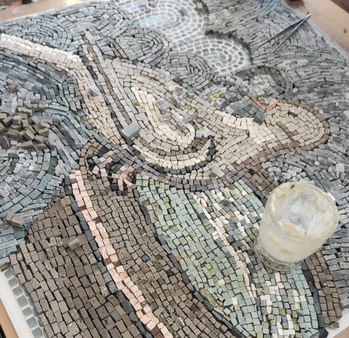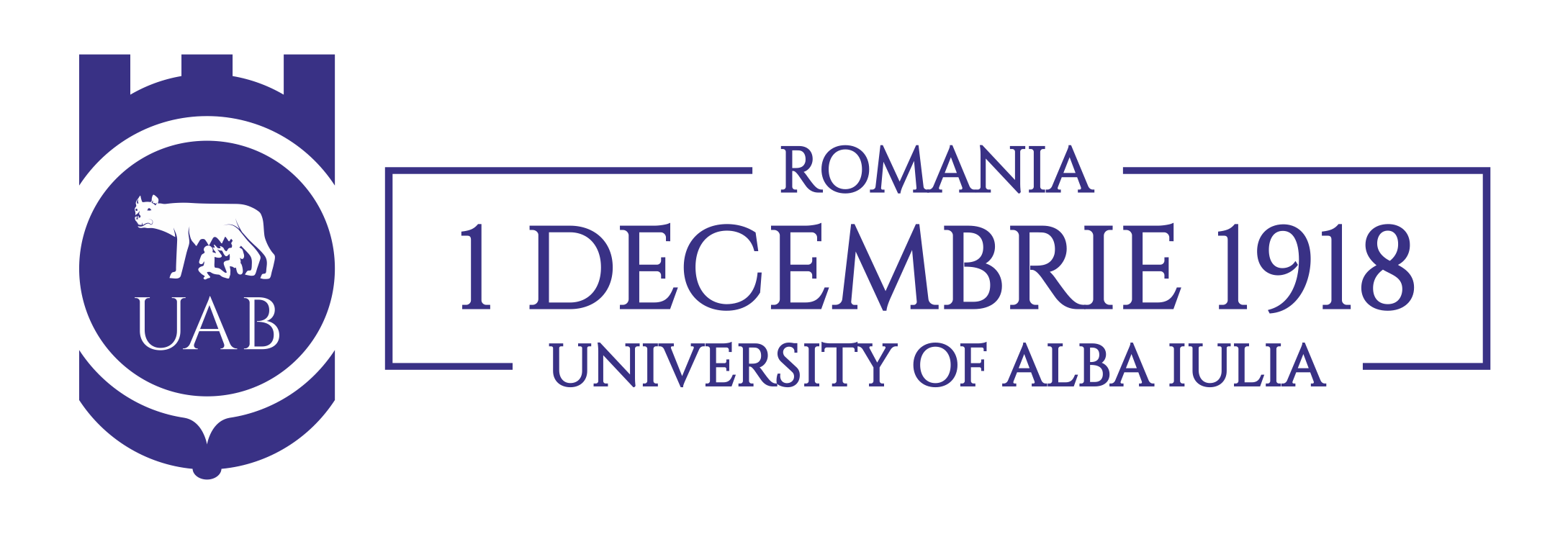Comparative Theology
Duration of studies
4 semesters
Brief presentation
Training of clerical and non-clerical personnel specialized in understanding, analyzing and scientifically interpreting the religious phenomenon; Program objectives: Acquiring of skills for the scientific investigation of different forms of socio-religious manifestation of the main Christian confessional traditions, in the context of their history and social, cultural and artistic tradition; engaging in a public interreligious and inter-denomination dialogue based on common principles and values for cultivating understanding, respect and religious diversity in a pluralistic society; promoting evangelical values in a positive, comparative and heuristic commitment to the values of other Christian denominations, in a critical and reflective analysis of one's own faith, especially the Orthodox one.
Qualifications and professions upon graduation
Specialists in religion, especially in the field of research of Orthodox theology in relation to other Christian denominations; Trained specialists in teaching Religion and the History of Religions; Professors for secondary and higher education
Main subjects studied
Religious geopolitics: Islam, Judaism and Christianity in dialogue; The doctrinal message of the icon for the third millennium from an interfaith perspective; Religion and politics in interwar Romania. Comparative perspective; Mysticism and mystagogy in the liturgy of the Christian East; Ethics and morals to great prophecies: historical context and contemporary times; Theological themes in contemporary ecumenical dialogue. Evaluations and perspectives; Modern catechisms and confessionalism; Comparative Overview at the ascetic, mystical and liturgical traditions of the Christian East (Byzantines, Armenians, Copts, Ethiopians, Syrians and Latins).
Aspects regarding professional practice
The practice is carried out after the end of the direct teaching activities in the second semester. The practice for students enrolled in master's research programs will be carried out, as far as possible, in scientific research units, research centers and in UAB research laboratories. The practice exam will take place in the last week of September.
Possibilities for further studies (master's degree, doctorate)
The Doctoral School of Theology, through its 11 doctoral supervisors and the related study programs, covers a vast area of research, from systematic theology and bioethics (history and philosophy of religions, dogmatics, morals, life ethics), to practical theology (liturgical, music, homiletics and catechetical).
Employment opportunities
The employment rate after graduation is high. This is possible given the absorption power in this area through the profile structures: Archdioceses, Dioceses, Deaneries, Parishes and NGOs, where an increased need for human resources has been identified.
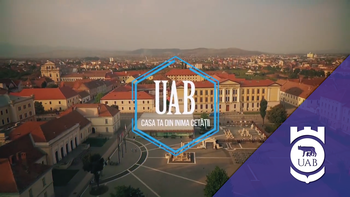
Intercultural and inter-religion Mediation
Duration of studies
4 semesters
Brief presentation
Training of specialists in the field of mediation and interfaith and interreligious dialogue; understanding, analysis and making the right decisions for ecumenical dialogue > Objectives of the programme: Training of scientific investigation skills, sine ira et studio, interculturality and interreligious processes taking into account the code on professional deontology and ethics Engaging inter-denomination and interreligious dialogue to cultivate understanding, respect and religious diversity in a multi-ethnic/confessional/religious society Promoting universal values, common to all religions: fighting discrimination, equal opportunities, promoting life by limiting any typologies of violence, building a positive pacifist-integrative vision of the world.
Qualifications and professions upon graduation
Training of specialized staff in the field of mediation and interfaith and interreligious dialogue; specialists in conflict resolution; mediator counselor; COR school counselor: 231 Prepares specialists in teaching Religion and the history of Religions; Professors for secondary and higher education.
Main subjects studied
The ethics of life in the context of the consumer society; Pastoral counseling and the nature of human relationships: from conflict to communion; Current issues in the process of intercultural and interreligious mediation and their roots; Religious music- the art of transforming conflict into communion; The Church and the Byzantine state - between dialogue, conflict and diplomacy; Directions and currents in comparative patristics: West & East; Sociology of religions: objectifications of the Sacred in social anthropology; Cosmology from the perspective of ecumenical dialogue; Intercultural theology and ecumenism; Religion and violence at the beginning of the millennium and the response of a genuinely agapic theology; Cultural, historical and legislative foundations of church mediation; Orthodox anthropology in contemporary missionary dialogue: holocaust, cremation and Eco theology.
Aspects regarding professional practice
The practice is carried out after the end of the direct teaching activities in the second semester. The practice for students enrolled in master's research programs will be carried out in the institutions and organizations where master students are employed (if they work in the field of the master program or if the organization has departments in the field of the master program) or, if they do not have a job, in organizations in the field.
Possibilities for further studies (master's degree, doctorate)
The Doctoral School of Theology, through its 11 doctoral supervisors and the related study programs, covers a vast area of research, from systematic theology and bioethics (history and philosophy of religions, dogmatics, morals, life ethics), to practical theology (liturgical, music, homiletics and catechetical).
Employment opportunities
The employment rate after graduation is high. This is possible given the absorption power in this area through the profile structures: Archdioceses, Dioceses, Deaneries, Parishes and NGOs, where an increased need for human resources has been identified.
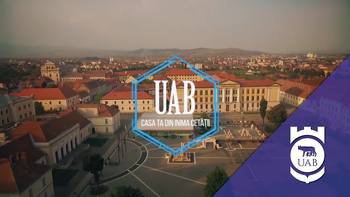
Religious Music and Folklore
Duration of studies
4 semesters
Brief presentation
The study programme in the field of Music started in 2014, when the Department of Religious Music was set out at the Faculty of Orthodox Theology in Alba Iulia. In 2019, the study programme was accredited, with each promotion of graduates feeling more and more acutely the need to open a master's program that would allow graduates to continue their studies. Many of our graduates have opted for a teaching career in secondary education and graduating master level being necessary to be able to tenure themselves on teaching positions in high school and post-high school education. Also, the increase of the prestige of the local musical bands implies a continuous improvement of their members, which would allow them to achieve a higher degree of professionalism.
Qualifications and professions upon graduation
Copier of musical notes ; Musical reviewer ; Teacher in high-school/post-secondary education (conditioned by the graduation of the psycho-pedagogical module, level II). The master's program addresses two great levels of musical culture, religious music and folklore, the subjects in the curriculum illustrating their different aspects. The following disciplines will be studied: Stylistics of Byzantine music, Ecclesial and ritual music, Religious choral music in the 20th century: orientations and trends, Choral liturgical singing, Conducting techniques in church music, Reading religious choral scores, Psalmodia and esoteric music, Aesthetics of religious music, Byzantine musical cultures, Principles of transcription of neumatic notation into linear notation, Variants of Byzantine music in the Orthodox area. Musical folklore is illustrated in the educational plan of the program through disciplines such as: Modal harmony applied to Romanian folk song, Traditional music group, Folk organology, Carol – musical and literary genre, Folklore collection – techniques and methods, Ethnomusicology, Vocal techniques of folk singing, Folk processing in the creation of Romanian composers, Principles of transcription of musical folklore, Conducting a Folk group. In addition to the subjects mentioned, there are also disciplines that provide an overview of musical language, such as the Higher Theory of Music. At the same time, specialized practice offers master students the opportunity to apply the knowledge acquired in vocal, instrumental, or vocal-instrumental bands.
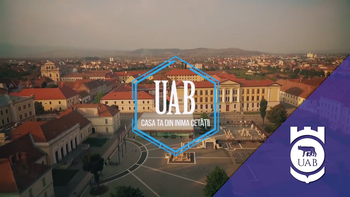
Byzantine mosaic art
Duration of studies
4 semesters
Brief presentation
The master's program Byzantine Mosaic Art offers graduates the ability to use several ways of artistic expression, applied to the characteristics of the Byzantine style, especially those regarding the mosaic technique and the technique of applying fresco. Through such methods, the premises of "training" the artistic vocation of students can be created, in order to express artistic creativity within the canonical frameworks of iconography. At the same time, thanks to the chosen training pattern, connections can also appear between the different artistic materialities, in order to obtain alternative plastic visions, proper to the visual expression of transcendence, with special cultural aspects. Another objective of this master's program is to train specialists who can research and analyze artistic works, a relevant aspect considering the historical potential of the area and the multitude of existing historical sites. This program is primarily addressed to graduates of the Sacred Art specialization, offering them the opportunity to complete their professional training.
Qualifications and professions upon graduation
Plastic artist (COR 265102), Painter (COR 265106), Conceptual artist (COR/ESCO: 2651.5)
Main subjects studied
The main disciplines studied within this program are: Sacred Art - Evolution, techniques and styles, Paleotechnics of mural-mosaic art, Iconography of contemporary art, Theology of the Byzantine icon, Explorations in mosaic art, Ethics of conservation and restoration.
Aspects regarding professional practice
The internship is carried out after the end of the direct teaching activities of each semester and is scheduled weekly. The internship for students enrolled in professional master's programs can be carried out in the institutions and organizations where the master's students are employed (if they carry out their activity in the field of the master's program or if the respective organization has departments in the field of the master's program) or, in the event that they do not have a job, in organizations in the field.
Possibilities for further studies (master's degree, doctorate)
In the near future, it is planned to create a doctoral school in the field of Visual Arts so that, in this way, the training cycle is complete (bachelor's, master's, doctorate). This goal is also necessary for the training of our own teaching staff required for the program.
Employment opportunities
The analysis of the labor market in the area certified a requirement for the improvement of certain professional categories in the field of Visual Arts. It was found that there is a need to cover three qualifications with specialists: plastic artist, conceptual artist and painter. Among the graduates of the Visual Arts bachelor's degree, more than half are employed in the field for which they trained or intend to change the field in which they work with the artistic one in which they qualified. The employers in the area surveyed – school principals, representatives of the Alba Iulia Orthodox Archdiocese, the Alba Iulia City Hall and the Alba County School Inspectorate – indicated that they have hired graduates of the Sacred Art program within our Faculty and that there is a need on the labor market for well-trained people, a goal that can be achieved by graduating from a master's program in the field.
